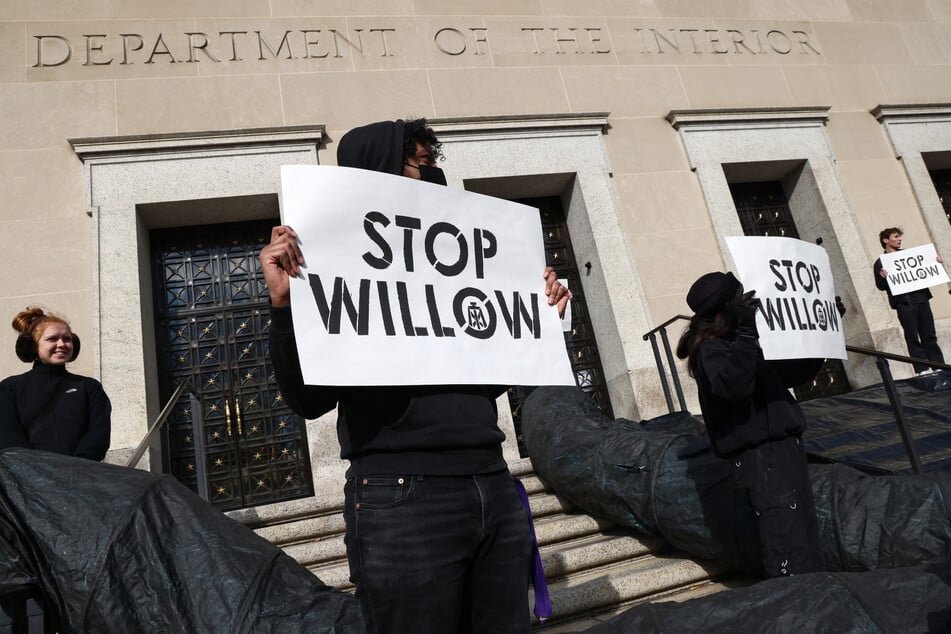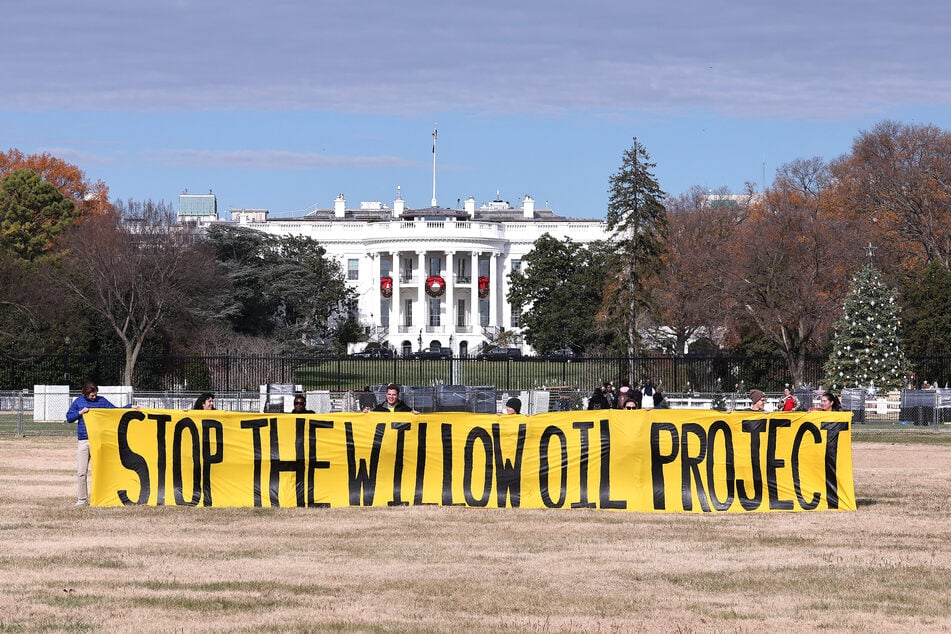Development of controversial Willow oil drilling project can continue in Alaska, court rules
San Francisco, California - A federal appeals court on Friday green lit the continued development of the controversial ConocoPhillips Willow Project in Alaska, approved under former President Joe Biden.

The 9th US Circuit Court of Appeals largely upheld the Bureau of Land Management (BLM) approval of Willow over challenges by Indigenous and environmental groups.
The $8-billion drilling project is expected to yield 629 million barrels of oil over three decades, with a high of 180,000 barrels of crude oil per day. In the process, it could emit an estimated 278,000 metric tons of CO2 over 30 years.
Groups challenging the approval argued the BLM had not considered a "reasonable" range of alternatives in conducting its environmental impact study. They also said the agency had limited consideration of alternatives to those that enabled full-field development.
The San Francisco-based appeals court ordered the BLM to explain its decision but did not overturn the permit for the project, "because the procedural error was minor."
Judge Gabriel Sanchez argued the issue was serious enough to deserve a different decision.
"BLM's errors were more fundamental than simply failing to explain how it applied the full field development standard among the alternatives it reviewed. At bottom, the agency failed to provide any reasoned explanation for its adoption of full field development," Sanchez wrote in his dissenting opinion.
Biden administration's approval of Willow Project sparks protests

The Biden administration's 2023 decision to approve the Willow Project – in spite of campaign promises to end federal oil and gas drilling – sparked protests from youth and Indigenous groups.
In 2021, US District Court Judge Sharon Gleason in Alaska overturned prior approval of Willow, prompting the BLM to create its 2023 Supplemental Environmental Impact Statement.
Gleason in 2023 then declined to vacate the project's approval, as plaintiffs sought an appeal.
In the meantime, Donald Trump has retaken the White House signaling his intent to ramp up resource extraction in Alaska. The president signed an executive order on his first day back in office pledging to accelerate fossil fuel production, mining, and logging in Alaska.
Last month, Trump administration officials visited Alaska as they pushed for increased oil and gas drilling and the construction of a controversial liquefied natural gas pipeline.
Willow Project slammed as continuing legacy of "colonization"

The latest ruling on Willow comes as Indigenous and environmental activists warn of the project's potentially devastating effects on the environment, Indigenous sovereignty, and threatened species.
"Decisions like this chip away at our hope that the government supports our rights to clean air, water, healthy lands, animals, and, above all, the right to life," Nauri Simmonds, executive director of Sovereign Iñupiat for a Living Arctic, said in a press release.
"Making decisions in the name of profits, with little regard to those who are most impacted, who are most vulnerable, that is a cornerstone of colonization. Proceeding as though due process was met, and the decisions were impartial, well that is inauthentic at best, and it feels insidious."
Trustees for Alaska noted the people of Nuiqsut, a community located near the Willow Project, will experience serious physical and mental health harms resulting from the conversion of their hunting and fishing grounds into an oil field.
The law firm's senior staff attorney, Bridget Psarianos, slammed the latest court ruling as "bad news for the planet and anyone who cares about the impacts of industrialization on communities now and in the future."
Cover photo: Jemal Countess / GETTY IMAGES NORTH AMERICA / Getty Images via AFP
